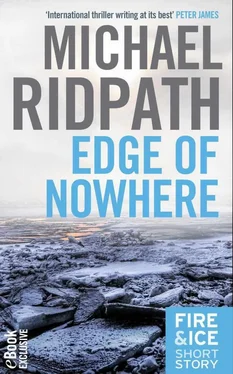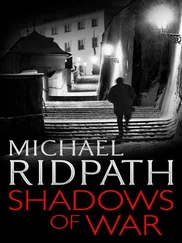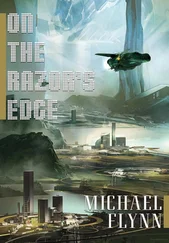‘Bolungarvík is at the head of the fjord,’ Eyrún said. ‘There’s only one road there and that’s this one, Route 61. It’s frequently blocked in winter by avalanches and rockslides, which is why they built the tunnel.’
‘When will the tunnel be finished?’
‘It is finished. But the landslide blocked the road on the other side. It would only take half an hour to clear it, but Tómas insists it’s a crime scene and won’t allow them to touch it.’
‘Good for Tómas. I bet that doesn’t make him popular.’
‘Oh, I don’t know. There’s quite a few people in town who think the road should stay blocked.’
‘Why?’ asked Magnus.
‘The hidden people.’
Magnus checked to see whether Eyrún was joking, but she wasn’t. Baldur excepted, many Icelanders, if not most, took the hidden people seriously.
Traditionally, Icelanders believed that their country was populated by a parallel society of human-like beings known as huldufólk , or hidden people. They generally kept themselves to themselves, but occasionally interfered in the lives of their more visible cousins. Every farm and village in the country had its tales of hidden people seducing young men or women, punishing wayward farmers, or providing helpful advice. The hidden people lived in rocks, the locations of which were passed down to their human neighbours through the generations. It was common for a hidden person to appear in the dream of the mother or grandmother to suggest a name for a new born child.
Hidden people were important people. Even well educated and sophisticated Icelanders like Eyrún wouldn’t deny their existence, although they usually wouldn’t characterise themselves as whole-hearted believers either.
Eyrún saw the way that Magnus was looking at her. ‘I tell you, up here in Bolungarvík it’s much easier to believe in the hidden people than it is in Reykjavík. The town is so isolated, the mountains are so big. It’s dark. There are storms, avalanches, strange things happen.’
‘Like road workers being buried under rockslides?’
‘That’s what people in Bolungarvík are saying.’
‘So the hidden people killed Ágúst?’
‘Gústi everyone called him. And I guess that’s something for you to find out.’
‘There it is,’ said Eyrún. ‘Bolungarvík.’
They had skirted a headland and in front of them, across a bay in the fjord, crouched the village. It was wedged on to the western edge of a small, flat plain, surrounded on three sides by steep mountains, and on the fourth by the sea. A cluster of white buildings clung tightly to the foot of the tallest mountain, a great block of snow-covered rock at the mouth of the fjord, towering above the town. A harbour wall stretched out into the sea, and beyond it, and beyond the great mountain, lay the Atlantic Ocean, swelling with power and danger.
The wind was blowing the clouds away behind them to the east, leaving dark blue sky tinged with pink. The sun was lurking somewhere behind the mountains to the south-west. At this time of year, dawn and dusk crowded out the daytime.
‘It’s a beautiful spot,’ said Magnus.
‘It’s beautiful from a distance,’ said Eyrún. ‘Up close it’s a different matter. The town’s architecture isn’t going to win any awards.’
They passed a squat orange lighthouse and then came to the junction with the road from the tunnel. Eyrún drove past the ‘Road Closed’ sign and pulled up next to a police car with its lights flashing, parked in front of a scattering of loose rocks not far from where the tunnel emerged out of the hill.
A tall figure dressed in the practical black uniform of an Icelandic policeman approached them.
Magnus and Eyrún got out. The cold wind slapped Magnus’s face and he zipped up his coat.
‘This is Tómas, Bolungarvík’s constable,’ Eyrún said.
Tómas was the same height as Magnus, about six-foot-four, with fair hair peeking out underneath his black cap, and bright blue eyes. For someone so large he had surprisingly delicate features. He held out his hand and greeted Magnus with a grin.
‘I’ll leave you to it,’ said Eyrún.
After the Mayor had driven off towards the village, Magnus turned to the constable. ‘So, Tómas. Tell me what happened.’
‘It was about six-thirty this morning,’ said Tómas. ‘Gústi, that’s the victim, came up here to install some protective netting against rockslides and avalanches. We’ve had quite a few recently.’
‘So, I’ve heard,’ said Magnus.
‘He seems to have been setting up the generator to power the floodlights when for some reason he climbed up the hillside over there.’
By the side of the road was a pickup truck half full of equipment. Next to it was a generator and a floodlight, unlit. A few metres along the road and further up the hillside was a jumble of rocks and stones, some of which had spilled across the tarmac.
‘Who found him?’
‘Me. A car on its way to Ísafjördur saw the rock fall and had to stop since the road was blocked. The driver got out, looked around for the owner of the pickup, didn’t see anyone and so called 112. I came out. It took me a few minutes to figure out what happened, but when I climbed up to the rock fall I saw a leg sticking out under the stones. I called in an ambulance and the fire engine and scrabbled away. It was Gústi. He was dead.’
‘What were his injuries?’
‘He had taken quite a battering. Bruises all over his body. His head was cracked open by the rocks: I’d guess that’s what killed him.’
‘Where is the body now?’
‘At the district hospital in Ísafjördur. The doctor will do the autopsy today.’
Most autopsies in Iceland were carried out by local doctors. There were two forensic pathologists in the country, but at this stage the death didn’t warrant their attention.
‘Did the driver see the landslide?’
‘No. No one saw it. She didn’t see any people or parked vehicles near the scene, either.’
‘All right,’ said Magnus. ‘Show me.’
Tómas led Magnus up an icy path to where he had found the body. Tómas had diligently placed crime-scene tape around the pile of rocks. He and Magnus ducked under it. ‘Right here,’ he said.
Magnus looked up the slope. The sun was definitely below the horizon now, and the last vestiges of daylight were seeping away. It was still possible to make out the hillside above. ‘I can see where the fall started,’ Magnus said.
‘Yes. One of the reasons I was suspicious is that there is a narrow footpath up the hill to that point. Can you see it?’
‘Yes,’ said Magnus. He could just make out a path under the snow. ‘Did you spot any footprints?’
‘Well, I think I did. I can’t be sure. It had just started to snow. To be honest, I didn’t think of the place as a crime scene. I just wanted to get Gústi out of there. There were the ambulance guys and the fire service and a couple of cops from Ísafjördur. So there was a real mess of footprints all over the place. By the time I began to consider that path, the snow had just about covered everything.’
‘Just about?’
‘I thought I could make out some prints on the path. It was cold, it was dark, they were gone in a few minutes if they were ever there.’
‘Did you get a photograph?’
Tómas shook his head apologetically.
‘What else made you suspicious?’
‘The victim. Gústi was not popular in the village. For example, just last Saturday night someone threatened to kill him.’
‘Who was that?’
‘Arnór. A local fisherman. He was drunk at the time, they both were, but there’s no doubt he hates Gústi. Hated him.’
‘Have you spoken to him?’
Читать дальше












